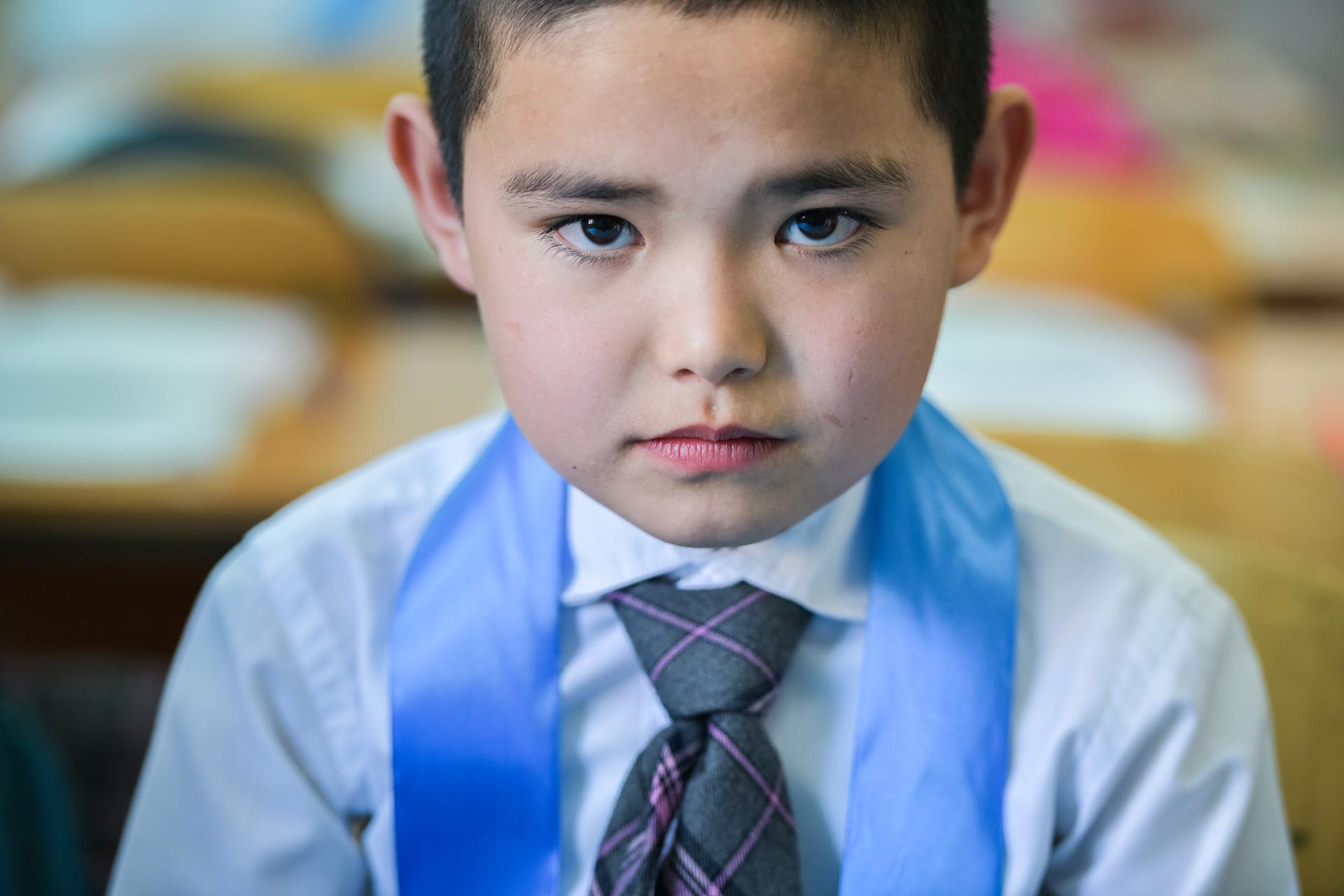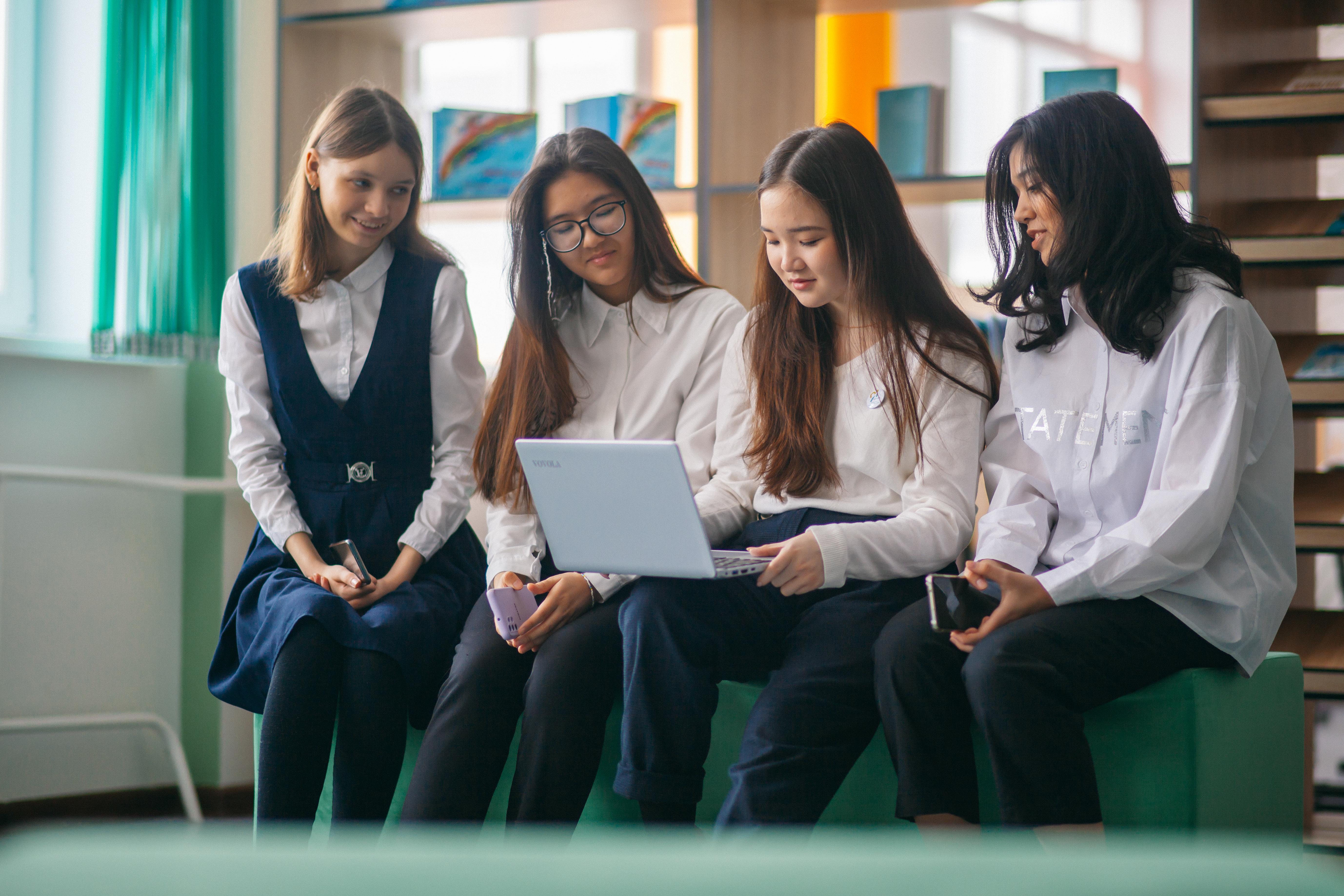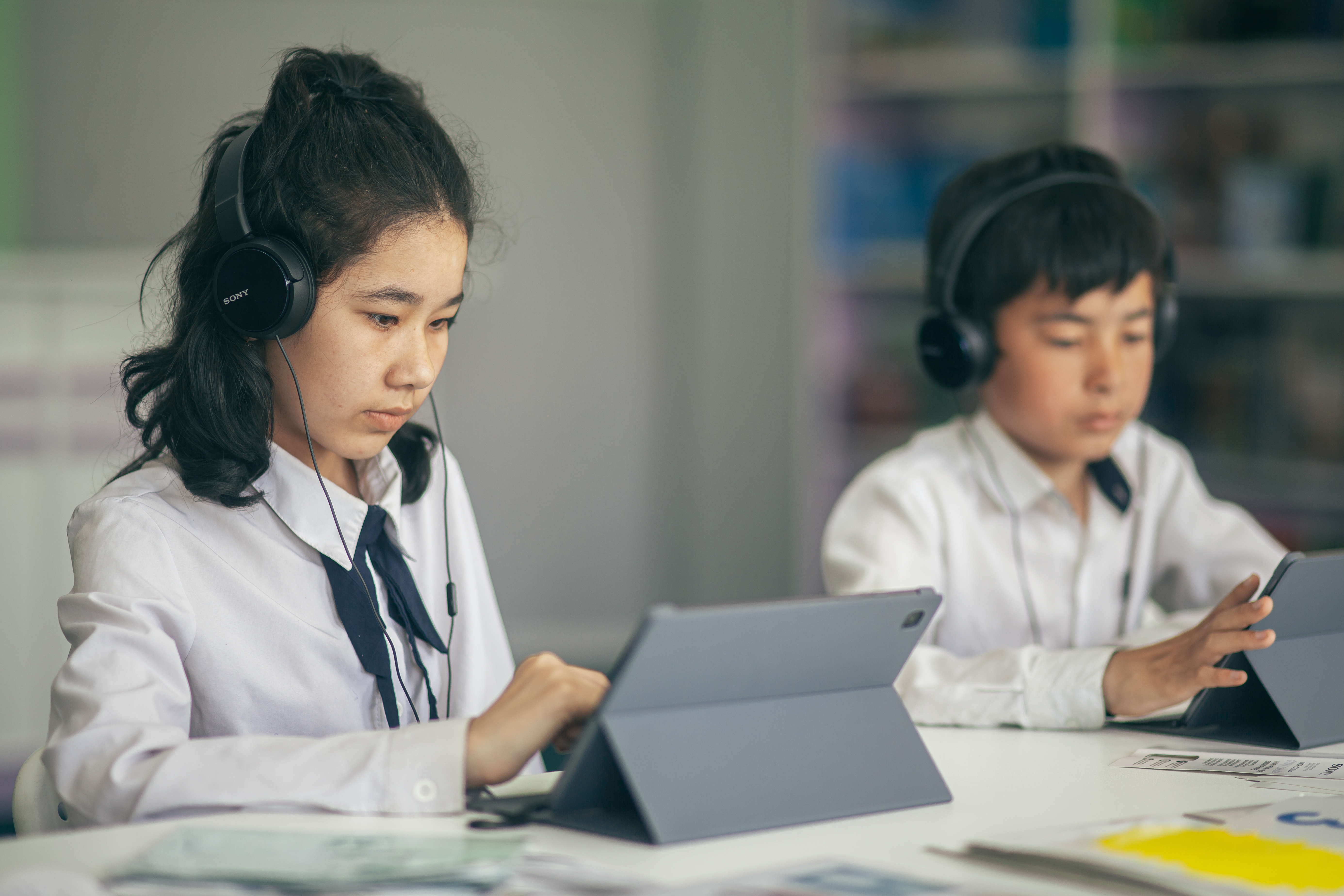
How to protect yourself from cyberbullying?
Technology today measurably impacts our everyday lives, fundamentally changing the way we live – how we make friends, how we learn new things and how we look for solutions to the problems that we care about. Yet new dangers also lurk behind new technologies in the form of what is currently termed “digital violence”.
Digital violence occurs when one person attempts to manipulate, intimidate and control another person to harm them using devices, apps and social media.
There are many different situations in which digital violence can be encountered: at work, at school or university and in the family. Such violence can come from both strangers and people close at hand.
This year, UNICEF and UNDP in Kazakhstan are partnering with the kundelik.kz platform to conduct a joint campaign against cyberbullying. The event is held in the framework of the UN campaign called "16 Days of Activism against Gender-Based Violence" which is held annually from 25 November to 10 December to raise public awareness and the involvement of all parties to address issues of violence in society.
Cyberbullying is bullying using digital technology. Cyberbullying can occur on social networks, on messaging apps, gaming platforms and cell phones. It is a deliberate pattern of behaviour designed to intimidate, enrage or shame the person being bullied.
Cyberbullying includes:
- Posting fake information or obscene pictures of someone on social media;
- Sending abusive or threatening messages through messaging platforms;
- Pretending to be another person and sending obscene messages on their behalf.
Bullying in real life and cyberbullying can often occur simultaneously. However, Internet bullying leaves a digital footprint - a record that can be useful and used as evidence to stop bullying.
How can I help prevent bullying at my child's school?
- Inform your children about bullying. Your children will be able to recognize bullying more easily once they understand what it is, whether it is happening to them or to someone else.
- Talk to your children frequently and openly. The more you talk to them about bullying, the more they will feel comfortable telling you if they see or experience it. Ask your children questions about their lives at school and what they do online daily. Ask questions not only about their classes and grades, but also about their feelings and friends.
- Help your child become a role model. Bullying involves three parties: the victim, the abuser, and the observer. Even if children are not victims of bullying, they can prevent bullying by being respectful and kind to their peers. If they witness bullying, they may defend the victim, offer support, and/or question the behavior associated with the bullying.
- Help your child develop self-confidence. Encourage your child to enroll in some activities or classes. It will also help build trust and create a group of friends with common interests.
- Be a role model. Teach your child how to treat other children and adults with kindness and respect by doing the same to the people around you, and also speak up when others are mistreated. Children look to their parents as examples of how to behave, including what to post online.
- Participate in their online environment. Learn about the platforms your child uses, explain how the online and offline worlds are linked, and warn them about the various risks they face online.

What should I do if my child is bullied at school?
- Listen to your child. He/she needs to feel understood and supported. Delay attempting to figure it out and solve the problem. Just listen, be there and support.
- Tell your child that you believe him/her and that you appreciate him/her sharing. Assure the child that it is not her/his fault and that you will do everything possible to help.
- Talk to a teacher or school administrator. You and your child should not fight bullying alone. Ask if your school has a code of conduct in case of bullying. Act together with the school.
- Constantly support your child. The support of loving adults is very important in dealing with the consequences of bullying. Let your child know that he/she can talk to you at any time. Make him/her believe that things will definitely get better.

What should I do if my child bullies someone at school?
If you suspect your child is bullying other students at school, please remember that there is a reason for this behavior. Your child is not bad per se. Children who bully others often want to fit in, need attention, or are simply trying to cope with difficult emotions. In some cases, "bullies" are themselves victims or witnesses of violence at home or in the community. Here's what you can do to help your child and #StopViolence:
- Speak up. Why is your child behaving this way? Does he/she feel insecure at school? Is he/she having a conflict with a friend or sibling? If he/she cannot explain his/her behavior, you can consult a social worker or a psychologist who is trained to work with children.
- Find healthy ways of overcoming difficulties. Ask your child to explain the situation that upset him/her and suggest constructive ways to respond. Try this kind of activity - ask your child to "put oneself in the others’ shoes". Remind them that online comments are destructive in the real world.
- Consider yourselves. Children who bully others often repeat what they see at home. Do they experience physical or emotional violence from you or another family member? Take a look at yourself and honestly think about what you are teaching your child.
- Give a chance to resolve the situation and act yourself, but without violence. For example, setting some limits, restricting activities related to bullying - meetings with friends, phone time, time on social networks. Motivate your child to apologize to their peers and find ways that they can be kinder in the future.
Bullying and stigma negatively impact children. In addition to the physical impact of bullying, children can suffer from emotional and mental health issues such as depression and anxiety. Your child has the right to a caring school environment in which all children feel safe.
Tips on how to look after yourself and others
Being online can present lots of great opportunities to connect, learn and share what’s important to you, but it comes with challenges too. If social media or the internet has ever made you feel stressed, envious or lonely, or experience feelings of lower self‑esteem or social anxiety, know that you’re not alone. Here are five tips on how to look after your mental health and be kind online.
1. Avoid doomscrolling
Pay close attention to how social media and online content is influencing your emotions, thoughts or actions. How does it make you feel? Does reading the news make you feel informed or stressed? Does seeing photos of your friends at a party make you feel good or envious? Do you check your phone first thing in the morning to learn about breaking news or out of pure habit?
Identifying why you are online and how it makes you feel can help you set the right personal limits on how much time you spend on social media or other apps.
Identifying why you are online and how it makes you feel can help you set the right personal limits on how much time you spend on social media or other apps. While it’s not always realistic to unfollow or report everyone that intentionally or unintentionally affects your emotions negatively, you could try muting or limiting content from accounts that are not making you feel good. It’s important to remember that not everything you see online is real, even from your friends, but how they affect you is.
2. Be mindful
There are loads of great online tools and content that can help support all aspects of mental health and wellbeing. From meditation apps to help you relax and focus, to platforms that help you develop your sense of identity and self, stay connected and support one another. There are lots of great online learning tools where you can try something new, like drawing or yoga, which can build new cognitive and creative skills, as well as online exercise classes to help you stay healthy and unwind.
Try and find positive and motivating content and creators to follow, like athletes, singers, home cooks, authors or other young people speaking up about issues they care about. Remember, you can also use the internet and social media to seek professional help and mental health information if you need it.

3. Protect yourself and others online
Check the privacy settings on all your social media profiles. Keep webcams covered when not in use. Be careful when signing up to apps and services online – especially providing your full name, address or photo. If you are concerned about something you have seen or experienced online, you should talk to a trusted adult like a parent or teacher, report the incident on the platform in question (remember to take a screenshot as a record) and look up safety helplines and mental health services in your country for more support.
You can help others too, by being mindful of their online experiences, recognizing the signs that a classmate, friend or even stranger, is not well or exhibiting signs of distress, and helping them get the support they need.
Words matter and it’s important to think carefully about what we share.
4. Choose kindness
Use social media for good, by sharing positive and supportive content and messages with your friends, family and classmates. For example, you could reach out to let someone know you’re thinking of them or add a positive comment on a post they shared. If you find yourself responding to a message or post with something negative, pause and consider whether you could frame it in another way or have an in‑person conversation instead. If you see or receive messages or content you consider to be bullying or abusive, you should block and report it. Words matter and it’s important to think carefully about what we share. We all have the power to be kind and make someone’s day – so let’s spread love, not hate!

5. Stay present and connected IRL
The lines between the online and offline worlds can feel increasingly blurred, making it hard to live in the present moment and satisfy our innate need for human contact. Do you ever find yourself interrupting what you are doing so you can post it on social media, or scrolling through your friend’s stories rather than calling or meeting up to see how they are doing? It’s important to try and switch off and take a break from social media every now and then and spend time with friends and family in real life too, where it’s safe to do so.
Try and set yourself realistic and personal goals, for example not picking up your phone or going online for the first hour of the day (it wastes energy and trains you to absorb information unfiltered) or just before bed. Activities such as meditation, going for a walk, or calling a friend will help provide a similar stimulation but leave you feeling more focused and relaxed.

 Locations
Locations




